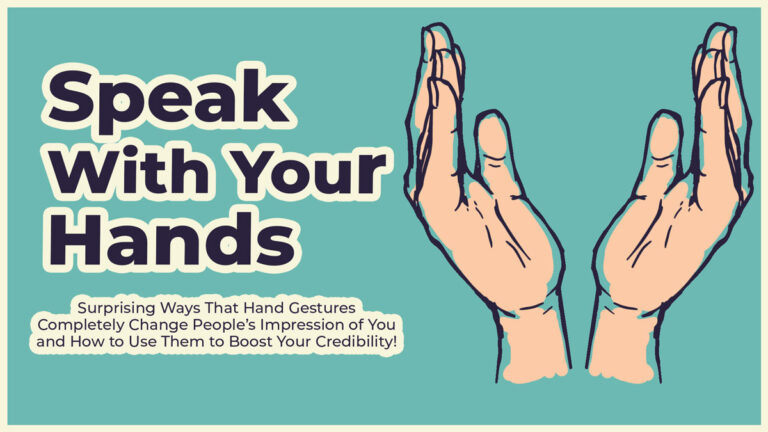Networking can feel overwhelming, especially when meeting new people.
The pressure to make a good impression, the fear of awkward silence, and the uncertainty of how to initiate a conversation can make the experience stressful.
But, with the right strategies, you can transform these encounters into valuable connections.
Successful networking is not just about exchanging business cards; it’s about building genuine relationships that can lead to personal and professional growth.
Whether you’re at a conference, a social gathering, or a professional meetup, these strategies can help you engage meaningfully with others and leave a lasting impression.
Here are 7 actionable tips to help you network successfully, ensuring that each interaction becomes an opportunity to expand your network and create lasting, impactful connections.
1. Start with a Smile

Smiling is a universal sign of friendliness and openness.
When you enter a networking event, greet people with a genuine smile to set a positive tone.
This simple gesture can help ease any initial awkwardness and make you appear more approachable.
A warm smile can break the ice and invite others to start a conversation with you.
It also helps in creating a friendly and welcoming atmosphere.
By starting with a smile, you set the stage for a pleasant interaction and show that you are open to meeting new people.
Remember, first impressions matter, and a smile is the easiest way to make a good one.
Imagine walking into a room filled with professionals.
You approach someone with a friendly smile, instantly making a positive impression.
2. Ask Open-Ended Questions

Asking open-ended questions encourages dialogue and shows that you are genuinely interested in the other person.
Instead of yes-or-no questions, ask about their experiences, opinions, or projects.
This invites them to share more about themselves and keeps the conversation flowing.
Open-ended questions can reveal shared interests and provide deeper insights into the person you are speaking with.
They also show that you are engaged and curious about their work and life.
This approach can help build a more meaningful connection and make the conversation more enjoyable for both parties.
Keep the questions relevant and related to the context of the event.
Picture yourself at a conference, asking a fellow attendee, “What do you enjoy most about your work?”
This sparks a lively discussion and leads to a deeper connection.
3. Listen Actively

Listening actively involves fully concentrating on what the other person is saying, rather than thinking about your next response.
Show that you are engaged by maintaining eye contact, nodding, and providing feedback.
Active listening demonstrates respect and builds trust, making the other person feel valued.
It also helps you understand their perspectives and responses better.
By listening actively, you can respond more thoughtfully and keep the conversation meaningful.
This practice can enhance your ability to connect with others on a deeper level.
Remember, people appreciate when they feel heard and understood.
During a networking event, you nod and make eye contact while a new acquaintance shares their latest project, demonstrating your attentiveness.
4. Share Your Story

Sharing your story helps others understand who you are and what drives you.
Keep it concise and relevant, focusing on key experiences that shaped your career.
Personal stories can make you more relatable and memorable.
They provide context about your professional journey and passions.
By sharing your story, you invite others to share theirs as well, fostering a mutual exchange of experiences.
This can create a strong foundation for a lasting connection.
Ensure your story is engaging and highlights your unique background and skills.
You share a brief, engaging story about how you started in your field, which captivates your listener and highlights your passion.
5. Find Common Ground

Finding common interests or experiences can establish a strong connection quickly.
This could be related to your industry, hobbies, or mutual acquaintances.
Shared interests provide a natural topic of conversation and make interactions more enjoyable.
They help build rapport and make the conversation feel more natural and less forced.
Identifying common ground can also make it easier to stay in touch and continue the relationship after the event.
This approach helps in creating a bond that goes beyond the initial meeting.
Look for subtle cues or hints in the conversation to find areas of commonality.
You discover a shared interest in a particular hobby with someone at a networking event, instantly creating a bond.
6. Follow Up Promptly

Following up is crucial for maintaining new connections.
Send a brief, personalised message within a few days of the meeting, expressing your appreciation and suggesting a way to stay in touch.
This reinforces the connection and shows that you value the relationship.
Prompt follow-ups can lead to continued conversations and potential collaborations.
They also demonstrate professionalism and a genuine interest in the relationship.
By following up, you keep the connection alive and open the door for future interactions.
Make sure your message is polite, concise, and specific to the conversation you had.
After an event, send a personalised follow-up email to a new contact, thanking them for the conversation and suggesting a coffee meeting.
7. Offer Help and Value

Offering help and providing value strengthens relationships and increases the likelihood that they will reciprocate in the future.
Be proactive in offering assistance or sharing resources that could benefit your new contacts.
This could be an introduction, advice, or useful information.
Demonstrating a willingness to help shows that you are not just interested in what you can gain, but also in how you can contribute.
This builds goodwill and can make you a valuable contact in your network.
Providing value can lead to deeper, more meaningful connections and establish you as a supportive and resourceful individual.
For instance, you offer to introduce a new contact to someone in your network who can help with a project they mentioned.
Successful Networking Needs Genuine Relationships
Networking doesn’t have to be intimidating.
Remember, successful networking is about building genuine relationships based on mutual respect and support.
With practice, you can become a confident and effective networker, capable of creating lasting and meaningful professional connections.


